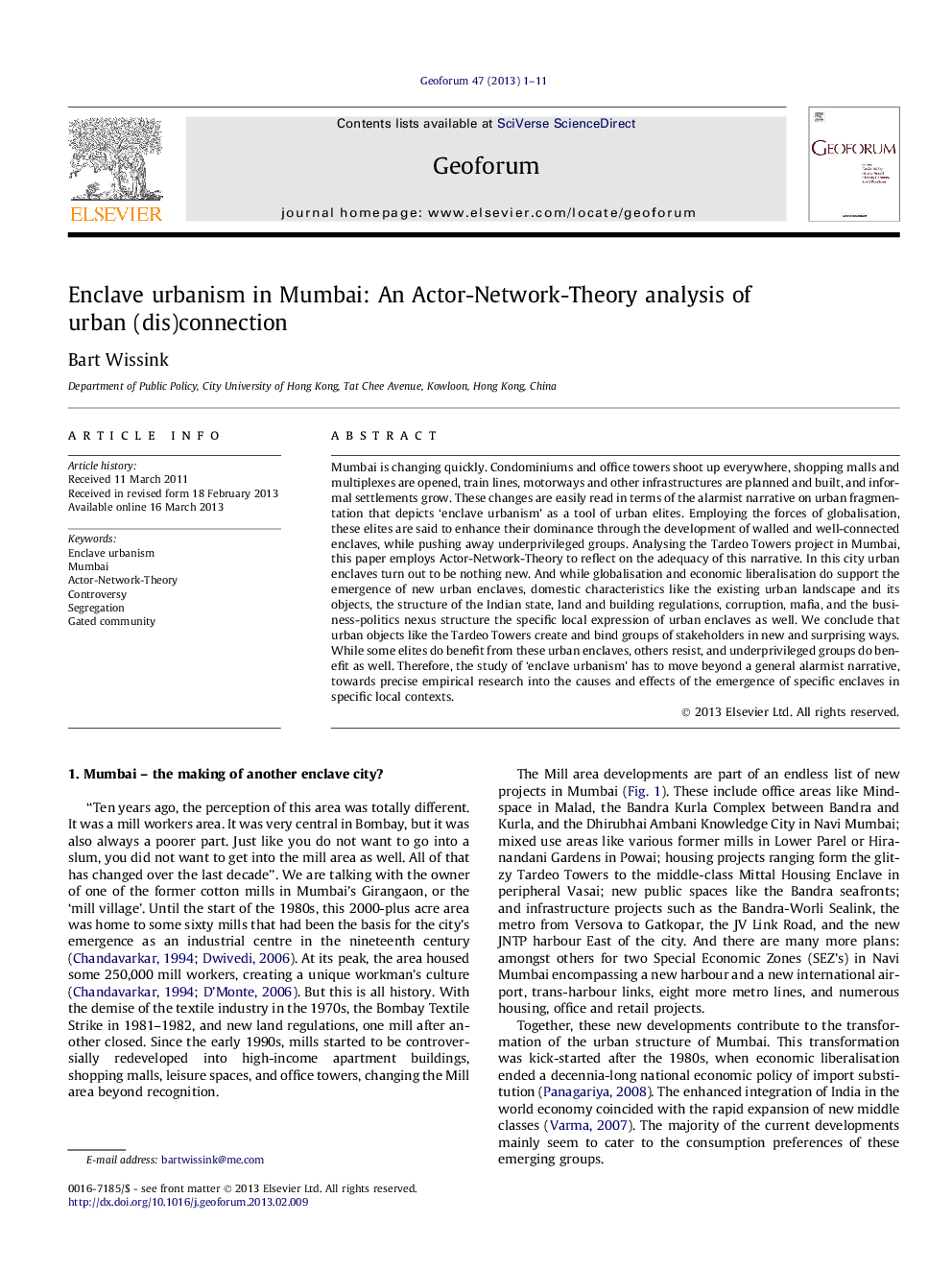| Article ID | Journal | Published Year | Pages | File Type |
|---|---|---|---|---|
| 5074272 | Geoforum | 2013 | 11 Pages |
Mumbai is changing quickly. Condominiums and office towers shoot up everywhere, shopping malls and multiplexes are opened, train lines, motorways and other infrastructures are planned and built, and informal settlements grow. These changes are easily read in terms of the alarmist narrative on urban fragmentation that depicts 'enclave urbanism' as a tool of urban elites. Employing the forces of globalisation, these elites are said to enhance their dominance through the development of walled and well-connected enclaves, while pushing away underprivileged groups. Analysing the Tardeo Towers project in Mumbai, this paper employs Actor-Network-Theory to reflect on the adequacy of this narrative. In this city urban enclaves turn out to be nothing new. And while globalisation and economic liberalisation do support the emergence of new urban enclaves, domestic characteristics like the existing urban landscape and its objects, the structure of the Indian state, land and building regulations, corruption, mafia, and the business-politics nexus structure the specific local expression of urban enclaves as well. We conclude that urban objects like the Tardeo Towers create and bind groups of stakeholders in new and surprising ways. While some elites do benefit from these urban enclaves, others resist, and underprivileged groups do benefit as well. Therefore, the study of 'enclave urbanism' has to move beyond a general alarmist narrative, towards precise empirical research into the causes and effects of the emergence of specific enclaves in specific local contexts.
⺠Urban theories see enclaves as instruments of elite domination under globalisation. ⺠Next to general theories we need empirical studies of enclaves in local contexts. ⺠Actor-Network-Theory helps to study the Tardeo Towers in Mumbai empirically. ⺠The Tardeo Towers are supported by mixed elite and non-elite coalitions. ⺠New enclaves co-evolve with new actors and their identities and interests.
